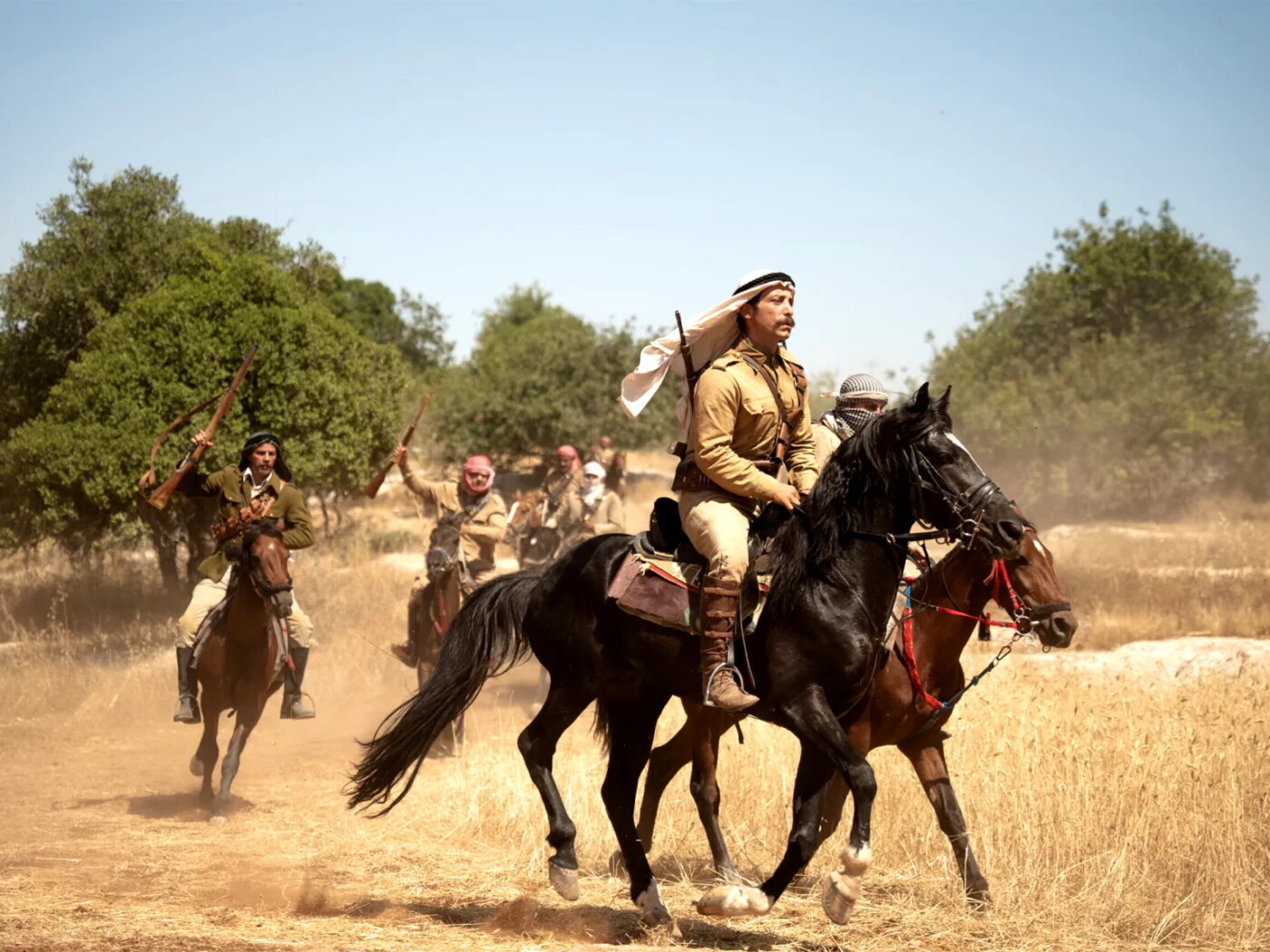Look for Arab cinema and lots of docs at festivals this week.
First up is the always impressively programmed Arab Film Festival, presented by the San Francisco-based Arab Film and Media Institute, which launches its 29th edition Thursday. More than three dozen films featuring genuine Arab culture and stories screen over 10 days at the AMC Kabuki 8, Roxie Theater, Google’s Community Space and Artists’ Television Access in San Francisco and the New Parkway Theater in Oakland. “Palestine 36” opens the festival at the Kabuki. Directed by Annemarie Jacir (“Wajib”), the film is an ambitious historical drama set in 1936, when villages in Mandatory Palestine were rising up against British colonial rule. Another highlight is “Calle Malaga,” directed by Maryam Touzani (“The Blue Caftan”). Spain’s Carmen Maura stars as a Spanish woman fighting to keep her childhood house in Morocco. Tarzan Nasser and Arab Nasser’s “Once Upon a Time in Gaza” is a crime drama about a young Palestinian seeking revenge for his friend’s murder. Documentaries include “Khartoum,” featuring five residents of Sudan’s capital city who are forced to leave the country when war breaks out. Also showing are “The Little Sister,” a Cannes-honored drama about the identity struggle of a French-Algerian lesbian teenager; “Where the Wind Comes From,” a Tunisian road tale; and short films from Egypt, Syria, Lebanon, the United States and elsewhere. For more information, visit arabfilmfestival.org.

“Cover-Up,” a profile of investigative journalist Seymour Hersh, screens opening night of Doc Stories. (SFFILM via Bay City News)
Doc Stories, too, is back, celebrating the documentary as an essential form of filmmaking and nonfiction storytelling. Presented by SFFILM, the festival’s 2025 edition runs Thursday through Sunday at the Vogue Theater in San Francisco. Ten features and about a dozen short docs screen, beginning with “Cover-Up,” directed by Laura Poitras (“Citizenfour”) and Mark Obenhaus. The film profiles Pulitzer Prize–winning investigative journalist Seymour Hersh, who covered the My Lai massacre, Watergate and Abu Ghraib among many stories. Tasha Van Zandt’s “A Life Illuminated,” the closing-night feature, explores the life and career of pioneering marine biologist Dr. Edie Widder. Ben Proudfoot’s “The Eyes of Ghana” follows 93-year-old filmmaker Chris Hesse as he works with other filmmakers to repatriate a trove of presumed-destroyed films documenting the birth of African independence. Other options include Sky Hopinka’s “Powwow People,” capturing a day at a contemporary Native gathering; Robert Gordon’s “Newport & the Great Folk Dream” about the 1960s-born Newport Folk Festival; “The Tale of Silyan,” “Honeyland” filmmaker Tamara Kotevska’s doc about a farmer, a stork and Macedonian folklore; and two programs of short films. For more information, visit sffilm.org.

“There Was, There Was Not,” directed by Emily Mkrtichian, documents the final days of the Republic of Artsakh—an unrecognized country located between Armenia and Azerbaijan—by following four brave women whose lives have been inalterably affected by war. Enjoying a peaceful existence in Artsakh when we meet them, Mkrtichian’s subjects are ethnic Armenians living in the aftermath of one war, with another war forthcoming. In that second war, which began in 2020, an Azerbaijani military offensive destroyed Artsakh. Displacement and ethnic cleansing occurred. The women express love for their country, which is described as having an almost fairy-tale quality. The doc’s title is the Armenian equivalent of “once upon a time.” Their situations reflect wartime realities and social inequality. Sose is a judo champion who has shelved her Olympic aspirations to become a frontlines soldier. Sveta disarms landmines. Siranush is a political candidate whose causes include the welfare of women. Gayane operates a women’s center and has received threats to her family because of her views on gender. A nightmare unfolds as bombs drop and evacuations occur. The movie also has pleasant material: verdant hills; a superbly mundane-looking cup of coffee; a tiny stuffed bear called Mr. Bean fondly displayed by Sose. At its conclusion, viewers have witnessed both an Armenian tragedy and inspiring demonstrations of defiance and tenacity. “There Was, There Was Not” opens Friday at the Lark Theater in Larkspur.

While noteworthy as a vehicle for Sydney Sweeney, “Christy,” a biopic about groundbreaking boxer Christy Martin, doesn’t do justice to its extraordinary subject, instead trapping her in a two-dimensional, formulaic story. Director David Michod (“Animal Kingdom”), cowriting with Mirrah Foulkes, begins in the mid-1980s when Christy Salters, a West Virginia coal miner’s daughter, is a feisty teen with a secret girlfriend (Jess Gabor), homophobic parents (Merritt Wever, Ethan Embry) and an aggressive style on the basketball court that brings her to the attention of boxing trainer Jim Martin (Ben Foster). The much older Jim becomes Christy’s manager and husband, and a dangerously possessive monster on both fronts. Christy’s career takes off in 1989, when, clad in pink, she begins a professional relationship with promoter Don King (Chad Coleman), which puts women’s boxing on the map. In the 1990s, she soars. But fame and glory can’t protect Christy from Jim’s abusiveness. Sweeney, who physically transformed for the role, is a force of verve and believable as an eager neophyte, a champion boxer and gritty survivor. The fight scenes are cinematic and visceral. But overall, “Christy” is a predictable, connect-the-dots affair whose characters display little depth. The punch is only on the surface. “Christy” opens Friday at Bay Area theaters. Rated R.
Award-winning German filmmaker Monika Treut — known for controversial films about queer lives and her collaborations with Bay Area artists including trans poet Max Wolf Valerio and “post-porn modernist” Annie Sprinkle—is the subject of a three-Tuesday showcase at the Roxie Theater. “Seduction: 3 Cruel, Yet Fair Films by Monika Treut,” consists of “Seduction: The Cruel Woman” (1985; codirected with Elfi Mikesch), at 8:45 p.m. Nov. 4; “Virgin Machine” (1988), 8:50 p.m. Nov. 11; and “Gendernauts” (1999), 6:15 p.m., Nov. 18.
The post Movies: Arab film fest, Doc Stories, ‘There Was, There Was Not,’ ‘Christy’ appeared first on Local News Matters.
